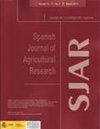农业集约化和农药使用对蜜蜂及其产品和可能的缓解措施的影响的综述
IF 0.8
4区 农林科学
Q3 AGRICULTURE, MULTIDISCIPLINARY
引用次数: 1
摘要
有相当多的科学证据表明,世界各地不同生态系统中传粉昆虫的数量正在减少。在这种情况下,农业集约化和植物检疫产品的使用可能是主要原因。这个问题对许多传粉媒介都很常见,但对蜜蜂(Apis mellifera)具有特别的生态系统、经济和生物学意义,因为它们在这些景观中的存在主要是由于接近人类粮食生产的蜂房,而且它们是农作物最重要的生物传粉者。在这篇综述中,我们综合了几年来关于这一主题的研究结果,以及参考文献中提到的可能有助于减轻污染对蜜蜂及其产品影响的潜在解决方案。此外,我们揭示了实际实施这些解决方案的可能限制,并得出结论,认为有必要实施农业系统的土地使用规划战略。如果短期内不采取缓解行动,农业生态系统作为蜜蜂友好栖息地的可持续性以及适合人类消费的食品的生产都是不确定的。本文章由计算机程序翻译,如有差异,请以英文原文为准。
A A review of the effects of agricultural intensification and the use of pesticides on honey bees and their products and possible palliatives
There is considerable scientific evidence revealing a decrease in pollinating insects in different ecosystems around the world. In this context, agricultural intensification and the use of phytosanitary products are likely the main causes. This problem is common to many pollinators but of particular ecosystemic, economic and bromatological significance for honey bees (Apis mellifera) since their presence in these landscapes is mainly due to the proximity of apiaries for human food production and because they are the most important biotic pollinators of agricultural crops. In this review, we present a synthesis of the results of several years of research on this topic, as well as potential solutions referenced in the bibliography that might help alleviate the effects of contamination on honey bees and their products. Additionally, we expose the possible limits of the real implementation of such solutions and conclude on the need to implement land-use planning strategies for agricultural systems. Without mitigating actions in the short term, the sustainability of agricultural ecosystems as bee-friendly habitats and the production of foods suitable for human consumption are uncertain.
求助全文
通过发布文献求助,成功后即可免费获取论文全文。
去求助
来源期刊

Spanish Journal of Agricultural Research
农林科学-农业综合
CiteScore
2.00
自引率
0.00%
发文量
60
审稿时长
6 months
期刊介绍:
The Spanish Journal of Agricultural Research (SJAR) is a quarterly international journal that accepts research articles, reviews and short communications of content related to agriculture. Research articles and short communications must report original work not previously published in any language and not under consideration for publication elsewhere.
The main aim of SJAR is to publish papers that report research findings on the following topics: agricultural economics; agricultural engineering; agricultural environment and ecology; animal breeding, genetics and reproduction; animal health and welfare; animal production; plant breeding, genetics and genetic resources; plant physiology; plant production (field and horticultural crops); plant protection; soil science; and water management.
 求助内容:
求助内容: 应助结果提醒方式:
应助结果提醒方式:


